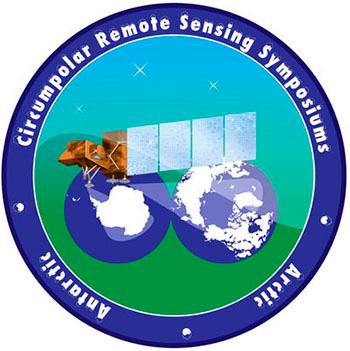|
|
|
|
|
|
|
|
Media
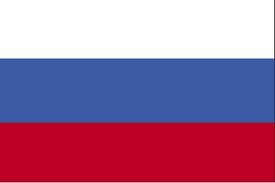 Russian Government Approves the Draft Agreement on the Prevention of Unregulated High Seas Fishing in the Arctic. Russian Government Approves the Draft Agreement on the Prevention of Unregulated High Seas Fishing in the Arctic. The Russian Government has approved the draft international agreement on the prevention of unregulated aquaculture fishing in the open seas in the central Arctic Ocean, according to the text of the agreement submitted by the Russian Ministry of Agriculture and published on the Government website. It is expected that the agreement will facilitate the development of international cooperation in fishing in the Arctic. The aim of the agreement is to create an international legal framework to regulate the high seas fishing industry in the central Arctic Ocean. The agreement has the preliminary approval of Denmark, Canada, Norway, Russia, the United States, China, Iceland, Japan, South Korea and the European Union. The Arctic
As Ice Recedes, the Arctic Isn't Prepared for More Shipping Traffic. I was aboard the 364-foot Russian research-cruise ship Akademik Ioffe when it came to a violent stop after grounding on a shoal in a remote region of the Gulf of Boothia in Canada's Arctic. Fortunately, none of the 102 passengers and 24 crew members were injured. Chemical contaminants that may or may not have been pumped out with the bilge water seemed to be minor. It could have ended up a lot worse. I was on the ship representing Yale Environment 360, which commissioned me to report on climate change in the Arctic and the research that scientists and students with the US National Foundation sponsored Northwest Passage Project were to be conducting on that three-week voyage. PBS News Hour
Coastal Erosion in the Arctic Intensifies Global Warming. The loss of arctic permafrost deposits by coastal erosion could amplify climate warming via the greenhouse effect. A study using sediment samples from the Sea of Okhotsk on the eastern coast of Russia revealed that the loss of Arctic permafrost at the end of the last glacial period led to repeated sudden increases in the carbon dioxide concentration in the atmosphere. Science Daily
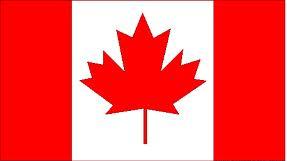 Indigenous Knowledge, Research are Key to Protecting the Arctic. Indigenous Knowledge, Research are Key to Protecting the Arctic. Combining research results with the generations of knowledge gathered by local communities will help to protect the northern environment and the culture of the people who call it home. The Honorable Kirsty Duncan, Minister of Science and Sport, accompanied Her Excellency the Right Honorable Julie Payette, Governor General of Canada, on a three-day visit to Canada's Arctic that focused on Arctic research and Indigenous knowledge. New Kerala
China Unveils Its First Domestically Built Icebreaker, Xuelong 2. China launched its first domestically built icebreaker Xuelong 2 on Monday, signalling the Asian country's ambitions to further explore the Arctic region. Following today's launch ceremony at the Jiangnan Shipyard in Shanghai, the ship - whose name translates as Snow Dragon 2 - is set to perform sea trials and is scheduled to begin operations in the first of half of 2019, reported state news agency Xinhua. Bringing China Closer
|
|
Future Events
Arctic Ambitions, September 11-12, 2018 (Anchorage, Alaska USA). WTC Anchorage launched the Arctic Ambitions Conference in 2011 in response to growing interest by Alaskan companies, and companies from around the world, in opportunities now, and in the future, for commercial development in the Arctic. At Arctic Ambitions VII, WTC Anchorage will outline its concept for positioning Alaska as an Arctic center for international business. This year's event will feature two special panels: Asia in the Arctic and Alaskan Native Corporations in the Arctic.
 North American Arctic Maritime and Environmental Security Workshop, September 18-20, 2018 (Anchorage, Alaska USA). North American Arctic Maritime and Environmental Security Workshop, September 18-20, 2018 (Anchorage, Alaska USA). The Arctic Domain Awareness Center at the University of Alaska and Trent University, Peterborough Ontario, jointly welcome participants to the North American Arctic Maritime and Environmental Security Workshop, University of Alaska Anchorage, Gorsuch Commons Center. The purpose of the event is to gather Arctic minded experts from government, operators, academics and industry principally from Canada and the U.S. to collaboratively assess security and provide solutions focused on the North American Arctic maritime region, including environmental and human security. The workshop will include plenary panels and breakout discussions to facilitate assessment and identify actions to mitigate risk and improve North American Arctic Maritime and Environmental Security. The "so what" of this workshop, is to build on prior discussions and assessments (much of which is contained in a preparatory Literature Review), and create a framework of actions that policy and decision makers can leverage. For more information, email here.
September NWS Alaska Climate Outlook Briefing, September 21, 2018 (Fairbanks, Alaska USA and via webinar). The tools and techniques for making monthly and season scale climate forecasts are rapidly changing, with the potential to provide useful forecasts at the month and longer range. We will review recent climate conditions around Alaska, review some forecast tools and finish up the Climate Prediction Center's forecast for October and the early winter season. This event is part of the National Oceanic and Atmospheric Administration Science Seminar Series.
Scientific Exploration of the Arctic and North Pacific (SEA-NorP), September 25-27, 2018 (Mt. Hood, Oregon USA). This workshop will include discussion of hypotheses that can be tested by scientific drilling in the region, the technology necessary to achieve those goals, ideal sites for drilling based on existing data, and where additional site survey data is needed. The goal of the workshop organizers is that multiple proposals will be initiated at the workshop, both for full cruise legs and for shorter, targeted expeditions around the following themes: ocean gateways, geohazards, volatile cycling, ice histories at transition zones, biosphere and climate.
The second Arctic Biodiversity Congress is hosted by the Conservation of Arctic Flora and Fauna (CAFF), the biodiversity working group of the Arctic Council, and the Ministry of the Environment, Finland. The second Arctic Biodiversity Congress will build on the success of the first Congress, held in 2014 in Trondheim, Norway, and will bring together scientists, policymakers government officials, Indigenous representatives, Traditional Knowledge holders, industry, non-governmental organizations, and others to promote the conservation and sustainable use of Arctic biodiversity.
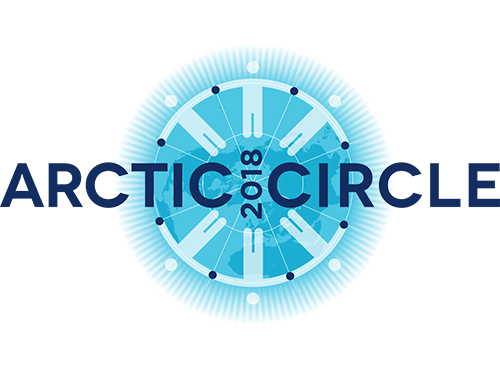 Arctic Circle Assembly, October 2018 (Reykjavik, Iceland). The annual Arctic Circle Assembly is the largest annual international gathering on the Arctic, attended by more than 2000 participants from 60 countries. It is attended by heads of states and governments, ministers, members of parliaments, officials, experts, scientists, entrepreneurs, business leaders, indigenous representatives, environmentalists, students, activists and others from the growing international community of partners and participants interested in the future of the Arctic. Arctic Circle Assembly, October 2018 (Reykjavik, Iceland). The annual Arctic Circle Assembly is the largest annual international gathering on the Arctic, attended by more than 2000 participants from 60 countries. It is attended by heads of states and governments, ministers, members of parliaments, officials, experts, scientists, entrepreneurs, business leaders, indigenous representatives, environmentalists, students, activists and others from the growing international community of partners and participants interested in the future of the Arctic.
Arctic Science Forum Associated with the 2nd Arctic Science Ministerial, October 25, 2018 (Berlin, Germany and via webcast). How vulnerable and how resilient are nature and the people of the Arctic region? How well do we understand the regional and global dynamics which are driving change in the Arctic? What impact will change in the Arctic have on us? These and other questions are the focus of this two-day conference. It will take interdisciplinary research in the Arctic to gain an understanding of past and future processes - a complex and cost-intensive venture. This makes an international network of Arctic research so important for delivering better results. Cooperation in research, the exchange of data, collaborative observation and monitoring schemes - international cooperation is imperative in research on the Arctic.
Only the Science Forum, on October 25th, will be webcast. The Arctic Ministerial, on October 26th, will NOT be webcast.
Maritime & Arctic Security & Safety Conference (MASS18) "Arctic Technology" November 15-16, 2018 (Newfoundland & Labrador Canada). Now in its sixth year, MASS has gained an international reputation as a must-attend event to gain a wide perspective on challenges, opportunities and policies related to the Arctic and North Atlantic maritime environments. The aim of this Government of Canada and the Government of Newfoundland and Labrador supported international conference is to promote stakeholder collaboration, technological innovation, harsh environment research & development, and world-class education efforts that are contributing to both Maritime and Arctic issues. This two day conference will draw a diverse group of speakers and attendees representing government, military, Canadian and U.S. Coast Guard, industry, academic leaders, Northern Leaders, research and other key stakeholders. We hope you can join us to be a part of this important dialogue
American Geophysical Union Fall meeting, December 10-14, 2018 (Washington, DC USA). The AGU 2018 Fall Meeting will mark another dynamic year of discovery in Earth and space science, serve as the advent of AGU's Centennial year, and provide a special opportunity to share our science with world  leaders in Washington, D.C. As the largest Earth and space science gathering in the world, the Fall Meeting places you in the center of a global community of scientists drawn from myriad fields of study whose work protects the health and welfare of people worldwide, spurs innovation, and informs decisions that are critical to the sustainability of the Earth.
ArcticNet: Annual Scientific Meeting 2018, December 10-14, 2018 (Ottawa, ON Canada). Canada's North is experiencing unprecedented change in its sea and terrestrial ice, permafrost and ecosystems under the triple pressures of climate change, industrialization and modernization. The impacts of these pressures can be seen on food and energy security, shipping, sovereignty, northern community health and well-being, and sustainable development and resource exploitation. All these issues have brought the North to the forefront of national and international agendas. Building on the success of its previous Annual Scientific Meetings and International Arctic Change Conferences, the Arctic Network of Centers of Excellence announces the 14th ArcticNet Annual Scientific Meeting.
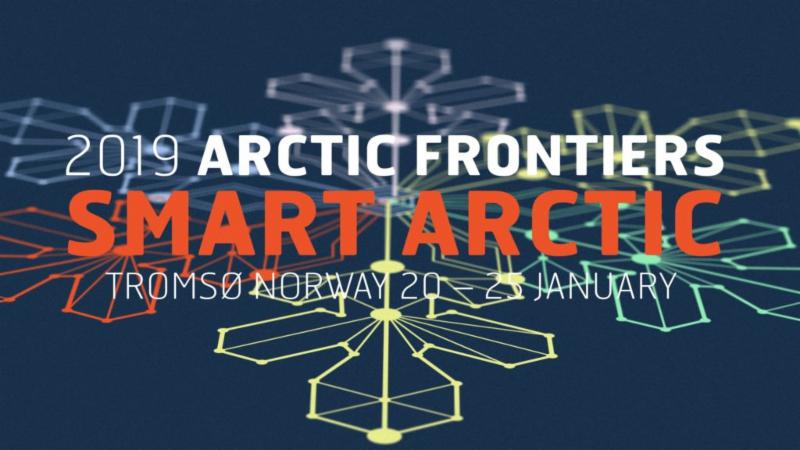 is a global scientific conference on economic, societal, and environmental sustainable growth. This year's theme will be "Smart Arctic," with a pan-arctic emphasis, and an effort to build new partnerships across nations, generations and ethnic groups. Arctic Frontiers provides a forum for dialogue and communication between science, government and industry. The plenary program will have five main sessions: State of the Arctic, Blue Growth, Smart Solutions, Bridging the Gap, and Arctic business prospects. An abstract-driven science program will address Plastics in the Ocean, the Future of Governance and Handling Vulnerability in Arctic Ecosystems, State of the Arctic and A Smart Arctic Future.
 of the AAG includes over 8,500 geographers converging from the U.S., Canada, and nearly 60 other countries in a typical year including geographers, GIS specialists, environmental scientists, and other leaders for the latest in research and applications in geography, sustainability, and GIScience. of the AAG includes over 8,500 geographers converging from the U.S., Canada, and nearly 60 other countries in a typical year including geographers, GIS specialists, environmental scientists, and other leaders for the latest in research and applications in geography, sustainability, and GIScience.
|
|

  
4350 N. Fairfax Drive, Suite 510
Arlington, VA 22203, USA
External links in this publication, and on the USARC's World Wide Web site ( www.arctic.gov) do not constitute endorsement by the US Arctic Research Commission of external Web sites or the information, products or services contained therein. For other than authorized activities, the USARC does not exercise any editorial control over the information you may find at these locations. These links are provided consistent with the stated purpose of this newsletter and the USARC Web site.
|
|
|
|
|
|
|
|
|
 Russian Government Approves the Draft Agreement on the Prevention of Unregulated High Seas Fishing in the Arctic. The Russian Government has approved the draft international agreement on the prevention of unregulated aquaculture fishing in the open seas in the central Arctic Ocean, according to the text of the agreement submitted by the Russian Ministry of Agriculture and published on the Government website. It is expected that the agreement will facilitate the development of international cooperation in fishing in the Arctic. The aim of the agreement is to create an international legal framework to regulate the high seas fishing industry in the central Arctic Ocean. The agreement has the preliminary approval of Denmark, Canada, Norway, Russia, the United States, China, Iceland, Japan, South Korea and the European Union. The Arctic
Russian Government Approves the Draft Agreement on the Prevention of Unregulated High Seas Fishing in the Arctic. The Russian Government has approved the draft international agreement on the prevention of unregulated aquaculture fishing in the open seas in the central Arctic Ocean, according to the text of the agreement submitted by the Russian Ministry of Agriculture and published on the Government website. It is expected that the agreement will facilitate the development of international cooperation in fishing in the Arctic. The aim of the agreement is to create an international legal framework to regulate the high seas fishing industry in the central Arctic Ocean. The agreement has the preliminary approval of Denmark, Canada, Norway, Russia, the United States, China, Iceland, Japan, South Korea and the European Union. The Arctic Indigenous Knowledge, Research are Key to Protecting the Arctic. Combining research results with the generations of knowledge gathered by local communities will help to protect the northern environment and the culture of the people who call it home. The Honorable Kirsty Duncan, Minister of Science and Sport, accompanied Her Excellency the Right Honorable Julie Payette, Governor General of Canada, on a three-day visit to Canada's Arctic that focused on Arctic research and Indigenous knowledge. New Kerala
Indigenous Knowledge, Research are Key to Protecting the Arctic. Combining research results with the generations of knowledge gathered by local communities will help to protect the northern environment and the culture of the people who call it home. The Honorable Kirsty Duncan, Minister of Science and Sport, accompanied Her Excellency the Right Honorable Julie Payette, Governor General of Canada, on a three-day visit to Canada's Arctic that focused on Arctic research and Indigenous knowledge. New Kerala
